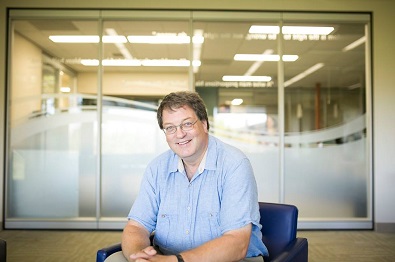Words like court action and blockades made by First Nations and Metis leaders, following the passage of the Saskatchewan First Act cause uncertainty among foreign investors possibly seeking new opportunities in the province, according to a University of Saskatchewan Professor.
Dr. Ken Coates, Canada Research Chair in Regional Innovation at the Johnson-Shoyama Graduate School of Public Policy said he is puzzled that the provincial government did not consult Indigenous leaders prior to tabling the legislation last fall.
“There’s a middle ground here that allows First Nations to be consulted. They’re not even saying they want a veto power, they’re not even saying they want to turn back. They’re basically saying that when you make decisions about our land and our resources and traditional lands and resources we should be consulted on a regular basis. I don’t think that’s a radical proposition to make. I actually think it’s a pretty standard one,” said Coates.
Indigenous leaders have been vocal since last fall when the Bill was tabled in the Legislature, concerned about how Treaty Rights would be impacted and over a lack of consultation. Justice Minister Bronwyn Eyre was quick to attempt to reassure that Treaty Rights would not be infringed, going so far for the government to amend the legislation to insert a clause protecting those rights. Yet Eyre admitted that the province did not formally consult with Indigenous leaders, merely engage in conversations and listening sessions. The province did not meet with Metis Nation-Saskatchewan or the Prince Albert Grand Council, despite a request to do so. Much of the conversations that did take place occurred well after First Reading of the Saskatchewan First Act.
“It would certainly slow things down. Foreign investors do not want to put a lot of money into a place where uncertainty reigns. It just doesn’t make sense,” Coates explained.
Coates called Saskatchewan an outlier among other provinces and territories, who he said have made great strides on improving relations with First Nations. He pointed to British Columbia, Alberta, Ontario, Quebec and Northern Canada of regions where the government and First Nations are collaborative partners welcoming potential investors. As the province is developing a renewed Indigenous consultation policy framework, Coates said other provinces are going above their legal obligation to ensure consultation requirements are met.
However the approach Saskatchewan is taking, is much different that some industries currently operating in the province. Cameco in Northern Saskatchewan has excellent relations with Indigenous communities, employing nearly 50 percent of its workforce as Indigenous or northern at its mines.
Coates said the potash industry too is making improvements. BHP recently signed Opportunity Agreements with six First Nations in the Jansen potash site region for various contracts over the next several years.
“The prospect of long-term and ongoing political strife to me just seems totally unnecessary right now in Canada,” Coates said.
The FSIN has long held the National Resource Transfer Agreement, which gave the provinces control over natural resources, was not First Nations ceding control or rights to what is on their lands or traditional territories. Coates said this is an unproven legal theory, which if tested in court present significant challenges in the future. Both First Nations and government must contemplate the outcome of a win or a loss before deciding to go to court.
The Metis Nation-Saskatchewan claimed victory Wednesday stating a Court of Appeals decision ruled in their favour that they were not consulted on the issuance of permits for a uranium development project in northern Saskatchewan.
Coates suggested that one reason the provincial government continues its approach to consultation with First Nations and Metis, is that it will not lose them votes.
“The provincial government’s stand in opposition of Indigenous Rights is not a vote loser,” he said. Coates explained that the New Democrats too are cautious in its approach to the subject, meaning discussions on the doorstep are not calling for immediate change.
But he warns that sooner or later, the provincial government will develop a more friendly approach to Indigenous consultation, as difficult discussions over resource revenue sharing agreements and other substantial topics will have to take place.
